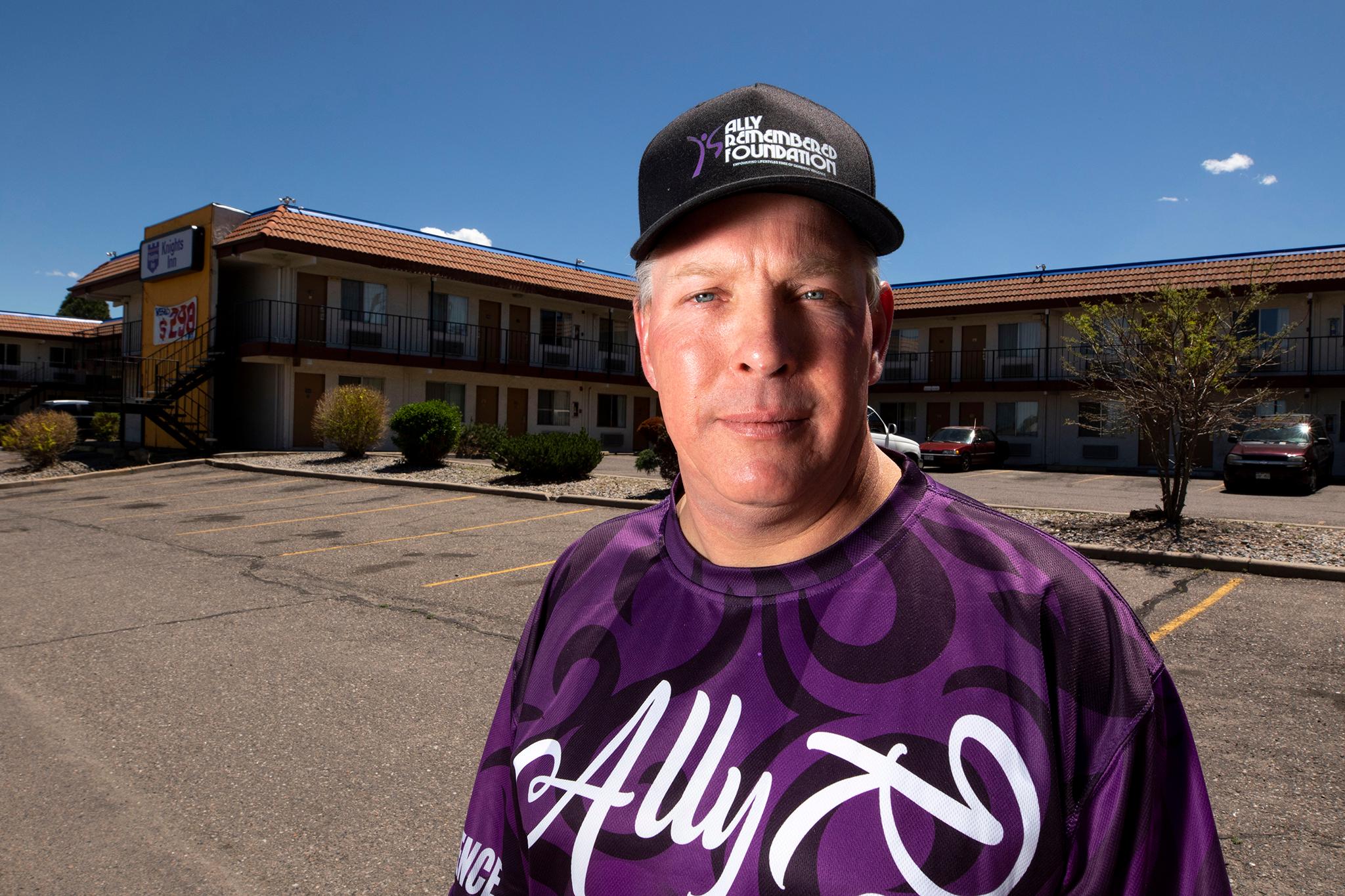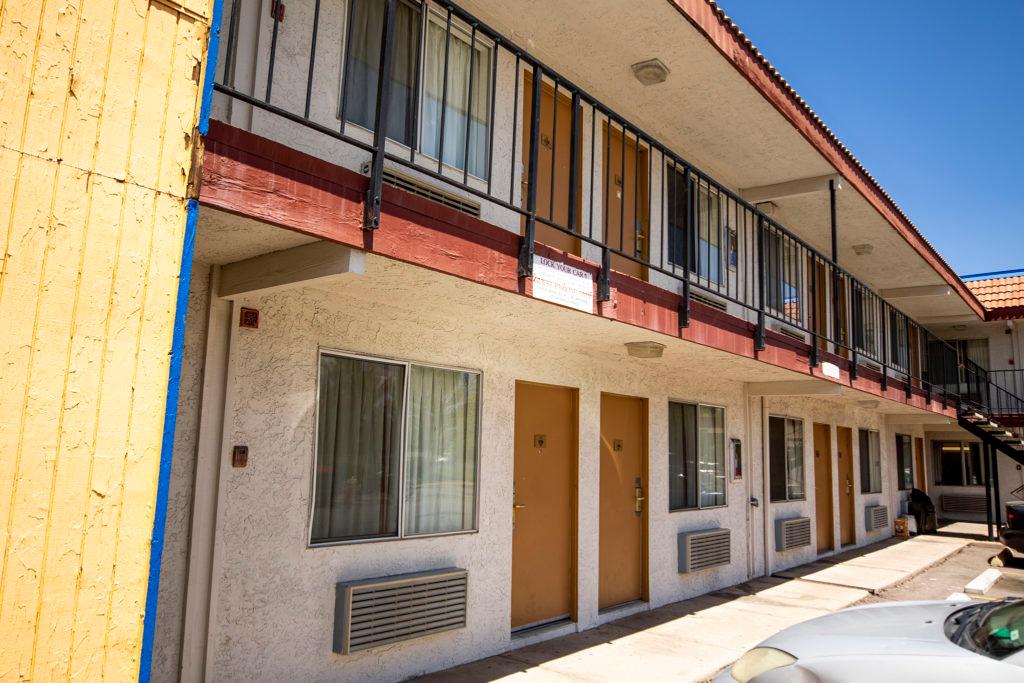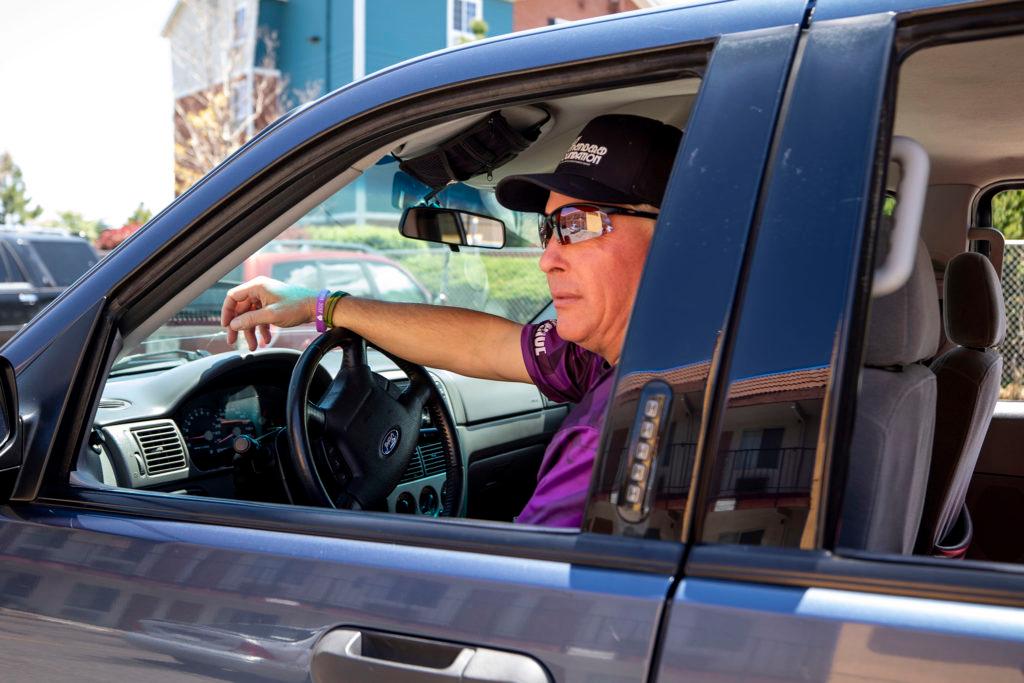
Andy Starrett’s teenage daughter was murdered in a hotel room almost three years ago.
The man accused of the crime, his daughter’s ex-boyfriend, fled to Mexico. It took more than a year to negotiate with the Mexican government to get him back.
When the day arrived that Starrett was to face the man in court, he was put off again: this time because of the global pandemic.
“Every time you gotta go to court or you have to talk to the DAs or you have to go for a meeting and he’s sitting there, it brings everything from the day it happened back,” Starrett said. “You literally start over every single time.”
The accused killer of Starrett’s daughter is one of the hundreds of defendants statewide who, prosecutors warn, might escape justice thanks to a microscopic virus that has created the biggest criminal justice logjam in the state’s history.
Thousands of proceedings have piled up due to the statewide halt of jury trials until, at least, July 6.
The problem is worse here because Colorado is among just a few states in the country that guarantee a trial within six months of arraignment or a plea. Colorado’s statutory promise makes it difficult in times of, say, a pandemic when courts have been ordered closed and no juries are being impaneled.
In more than three dozen other states, speedy trial guarantees can be waived for “good cause” or “exceptional circumstances,” according to research by the Colorado District Attorneys Council.

Prosecutors say there are hundreds of defendants bumping up against — or beyond — that six-month deadline, which puts them at risk of having charges dropped altogether if they run beyond it.
“We view this as a significant public safety issue,” Weir said. “People are entitled to their day in court. They’re entitled to have their case adjudicated by a jury of their peers. But justice should not be avoided by these circumstances that are beyond the control of anyone.”
In Adams County alone, District Attorney Dave Young had 300 trials scheduled in the month of June that won’t happen. In Jefferson County, District Attorney Pete Weir said he had 171 adult felony jury trials scheduled through the summer and another 512 trials scheduled for county courts.
Weir and his 21 other district attorney colleagues across the state are urging lawmakers to swiftly pass legislation that adjusts the speedy trial requirements to account for the state’s public health emergency.
“The trials are stacking up,” said Tom Raynes, head of the Colorado District Attorneys Council. “We’re going to get bad results for public safety ultimately if something isn’t done.”
At first, there was a lot of interest in fixing the problem on all sides. But it’s grown into a hot potato in the state’s criminal justice policy world, pitting victims advocates and the criminal defense bar against prosecutors and the Democratic attorney general, who has sought a legislative solution.
“We would not support a really broad evisceration of the rights of the accused based on the pandemic,” said Tristan Gorman, a criminal defense lawyer and lobbyist for the Colorado Criminal Defense Bar. "Particularly not a permanent one that is going to remain memorialized in statute after the public health crisis is over.”
Defense lawyers point out there are a couple of other workarounds already in place that should suffice in keeping rights intact for both defendants and prosecutors seeking justice.
There’s a part of the speedy trial statute that allows for extensions on cases where, for whatever reason, after a good-faith effort the prosecutor can’t carry out the prosecution within the six-month timeframe.
And there is also a recent rule, issued by the state’s chief judge, allowing for lower judges to call mistrials due to the inability to impanel a jury because of the pandemic.
Prosecutors worry, though, that a simple rule doesn’t give full-proof protection against an appeal if the defendants’ trials are pushed way beyond the six-month limits.
“It’s good the state supreme court has done this because they’re the ones who will ultimately hear the appeal in the state of Colorado,” said Young. “But what’s going to happen if it goes to the federal courts or the U.S. Supreme Court, for example. Obviously, under the current situation, we just can’t bring people together to pick a jury.”
Plus, prosecutors point out that everyone dislikes mistrials — they’re inefficient because both sides prepare for a court date, subpoena witnesses, get everyone ready and then they get to court and the judge discovers there are not enough jurors and it all gets postponed.
“People don’t realize how much time it takes to get a witness subpoenaed,” Young said.
Emily Tofte-Nestaval, who runs the Rocky Mountain Victim’s Law Center, said a state law purposefully delaying criminal proceedings for months beyond the speedy trial requirement could cause victims more pain because delays spark “ongoing trauma.”

“It’s important to recognize for victims, especially of violent crime, this is not a pleasant process that they want to go through or that they’ve asked to go through,” Tofte-Nestaval said. “What happens over time is you have victims and survivors lose trust in the system.”
She said she wanted to work on other solutions to resume criminal proceedings safely, amid the pandemic. This could include conducting voir dire in, say, high school gymnasiums, where potential jurors could sit several chairs apart with masks.
“We hope we can work collaboratively to really address these problems and do creative problem solving to keep these cases moving forward,” she said. “Rather than indefinitely postponing them.”
For Starrett and the rest of murder victim Ally Raber’s family, they will continue to wait — beyond the pandemic if they have to — for the trial.
“When you get into this kind of stuff, you can either get real angry,” Starrett said. “Or you can learn to have patience.”









